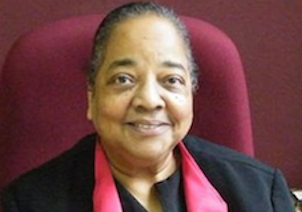Advancing integral disarmament

Leela Ramdeen
Our world is sorely ill. We crave for peace and non-violence. Today, 24 October, we observe the 76th Anniversary of the founding of the United Nations. That day is also the beginning of Disarmament Week which will run from 24-30 October. As Antonio Guterres, Secretary General of the UN states: "Disarmament must be brought back to the centre of our common efforts for peace and security...The total elimination of nuclear weapons remains the highest disarmament priority of the United Nations."
Disarmament Week "seeks to promote awareness and better understanding of disarmament issues and their cross-cutting importance" (UN). You will recall that in 2018 Guterres presented a new agenda for disarmament "to save humanity, save lives and secure our common future." It is entitled: Securing our Common Future: An Agenda for Disarmament. In it he outlined "a vision of disarmament actions that help set our world on a path towards sustainable peace and security for all." It's an Agenda that "recognises the important contribution of disarmament and arms control to achieving the 2030 Agenda for Sustainable Development."
But in spite of this Agenda, and in spite of efforts by concerned citizens/organisations around the world, the arms race continues apace, and war mongers salivate at the various Arms Fairs which are held all over the world, and which have increased significantly over the years.
In his Easter message this year, Pope Francis urged countries to speed up the distribution of Covid-19 vaccines, particularly to the world's poor. He called armed conflict and military spending during the pandemic "scandalous". He said: "The pandemic is still spreading, while the social and economic crisis remains severe, especially for the poor. Nonetheless - and this is scandalous - armed conflicts have not ended and military arsenals are being strengthened."
During his trip to Nagasaki and Hiroshima in 2019, he spoke out against the use and possession of nuclear weapons and reaffirmed the church's long-standing position calling for deeper disarmament, non-proliferation and a ban on nuclear weapons.
He said: "The use of atomic energy for purposes of war is immoral, just as the possessing of nuclear weapons is immoral, as I already said two years ago. We will be judged on this. Future generations will rise to condemn our failure if we spoke of peace but did not act to bring it about among the peoples of the earth. How can we speak of peace even as we build terrifying new weapons of war? How can we speak about peace even as we justify illegitimate actions by speeches filled with discrimination and hate?...
"We must never grow weary of working to support the principal international legal instruments of nuclear disarmament and nonproliferation, including the Treaty on the Prohibition of Nuclear Weapons...an accident or the madness of some government leader, one person's madness can destroy humanity."
In March this year, the Vatican hosted a 3-hour webinar on "Advancing integral disarmament in time of pandemic." Inter alia, Cardinal Parolin said that promoting integral security "means transforming the instruments of hatred into instruments of peace. It means rejecting the growing proliferation of weapons and accepting the promotion of the common good and the alleviation of poverty."
There is a sense of urgency that many seem to be ignoring. An article in the UK's Daily Mail on Sun 17 Oct by Katie Feehan, Stewart Carr and Rachael Bunyan, should raise our awareness of the fragile nature our existence. The article stated that China has secretly tested a nuclear-capable hypersonic missile. The headline read as follows:
"Beijing blasts nuclear-capable hypersonic missile right around globe: Terrifying new 21,000mph weapon circles in low orbit before striking anywhere on Earth from space in minutes - and would render US anti-missile defences useless. Report from Financial Times said test showed China had made 'astounding progress' on hypersonic weapons. Hypersonic missile launched in August, circled the globe at low orbit and missed target by two dozen miles. US intelligence was caught off guard as the US is one of eight nations developing their own hypersonic missiles."
And with tension growing in the Taiwan Strait; with the countless wars and conflicts in our world, we certainly need more artisans of peace to save our common home. Countries are spending trillions of dollars on weapons of mass destruction while many of their citizens go hungry. St Teresa of Calcutta rightly said: "If we have no peace, it is because we have forgotten that we belong to each other."
Let's strive to build right relationships in our communities and in our world.
Leela Ramdeen is Chair of the Catholic Commission for Social Justice & Trinidad & Tobago Archdiocese's Ministry for Migrants and Refugees
Website: http://rcsocialjusticett.org
Facebook: www.facebook.com/ccsjtt
Instagram: ammrcatholictt
Twitter: @ammrcatholictt1.


















